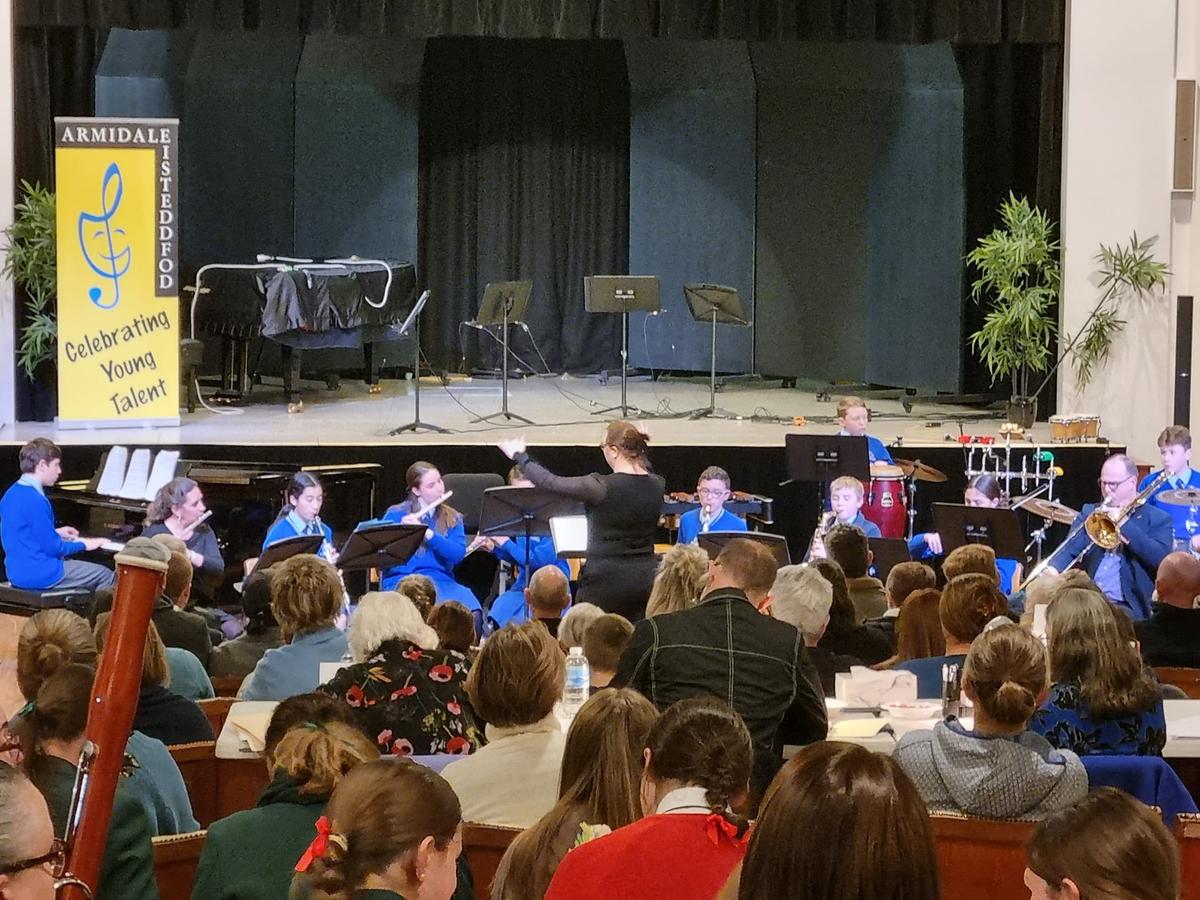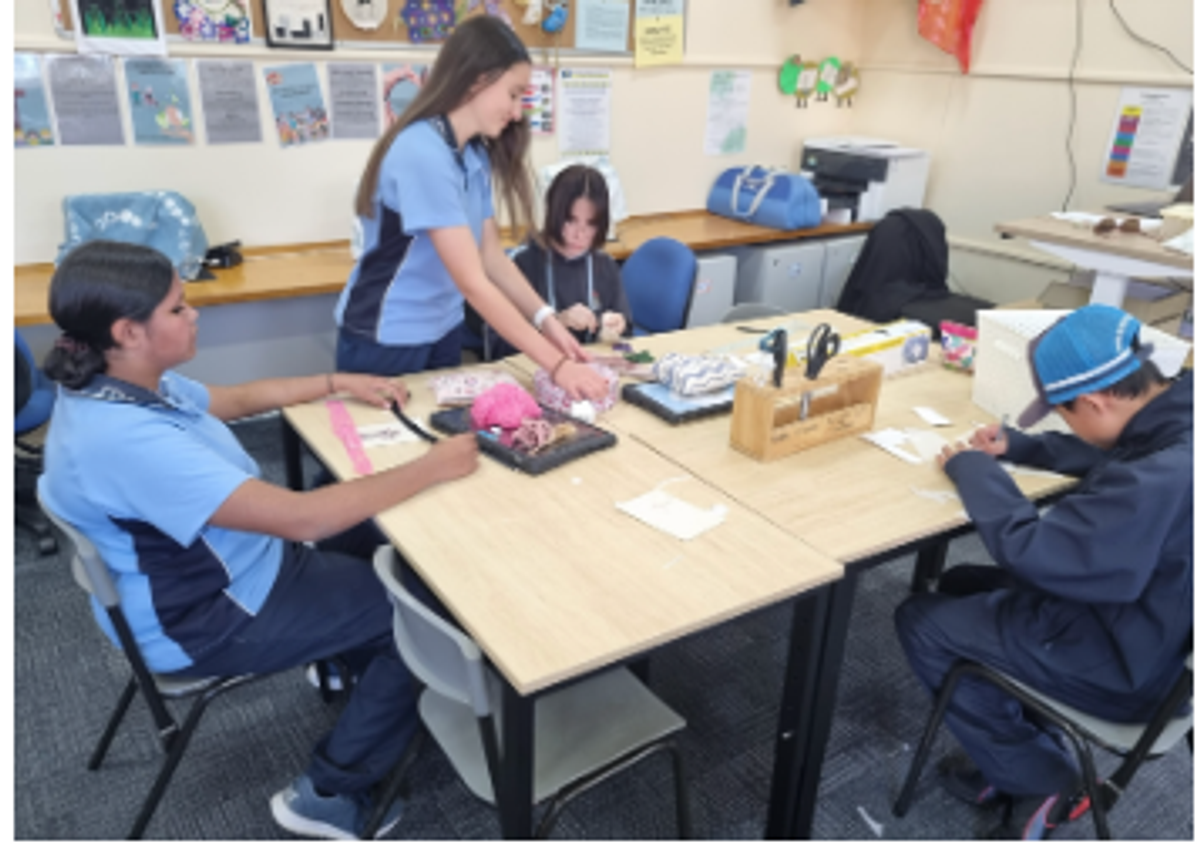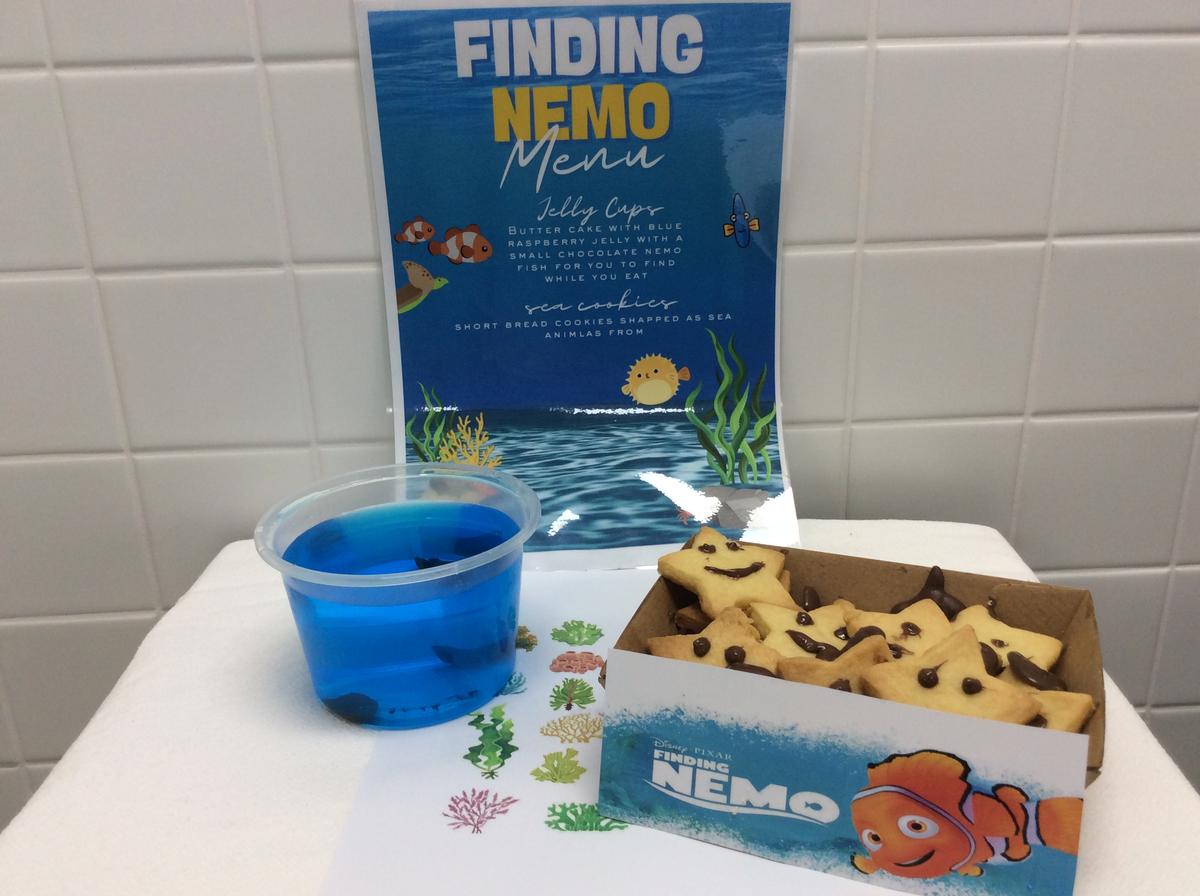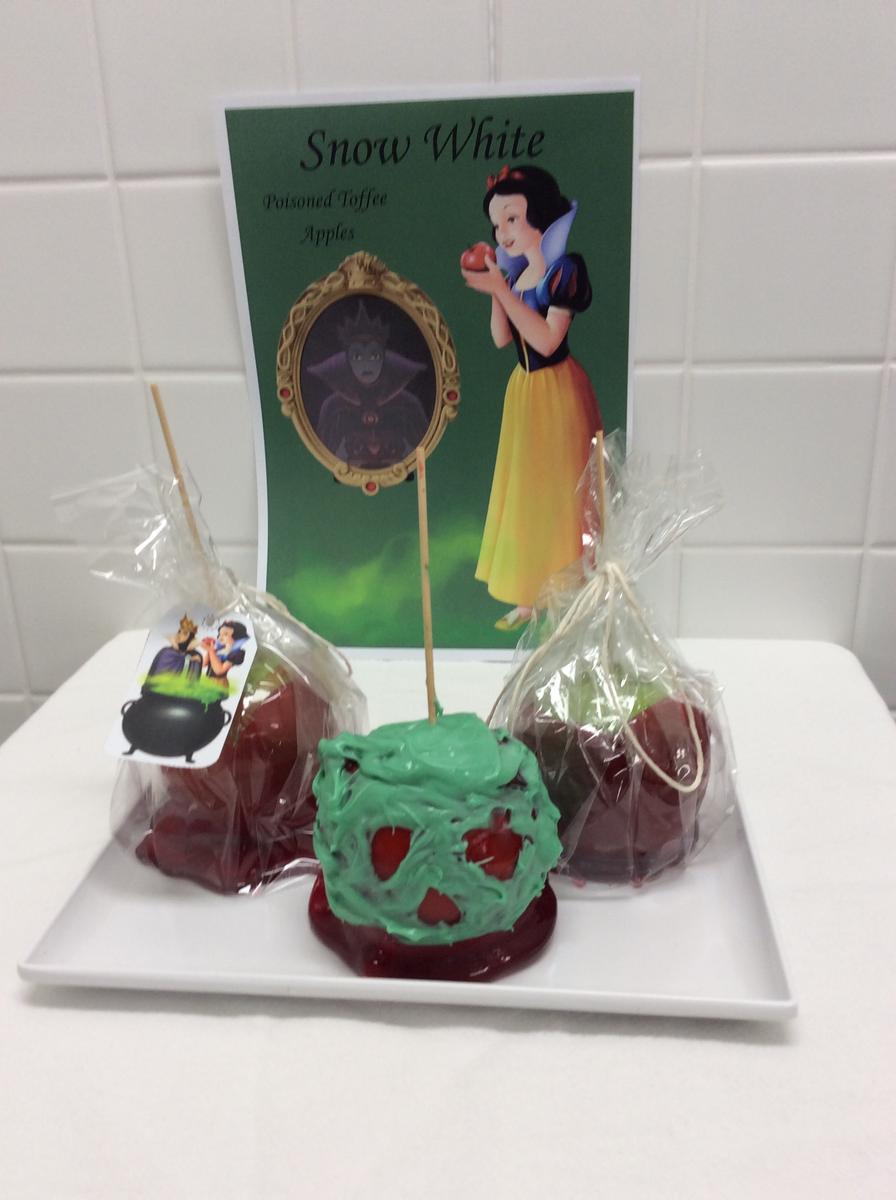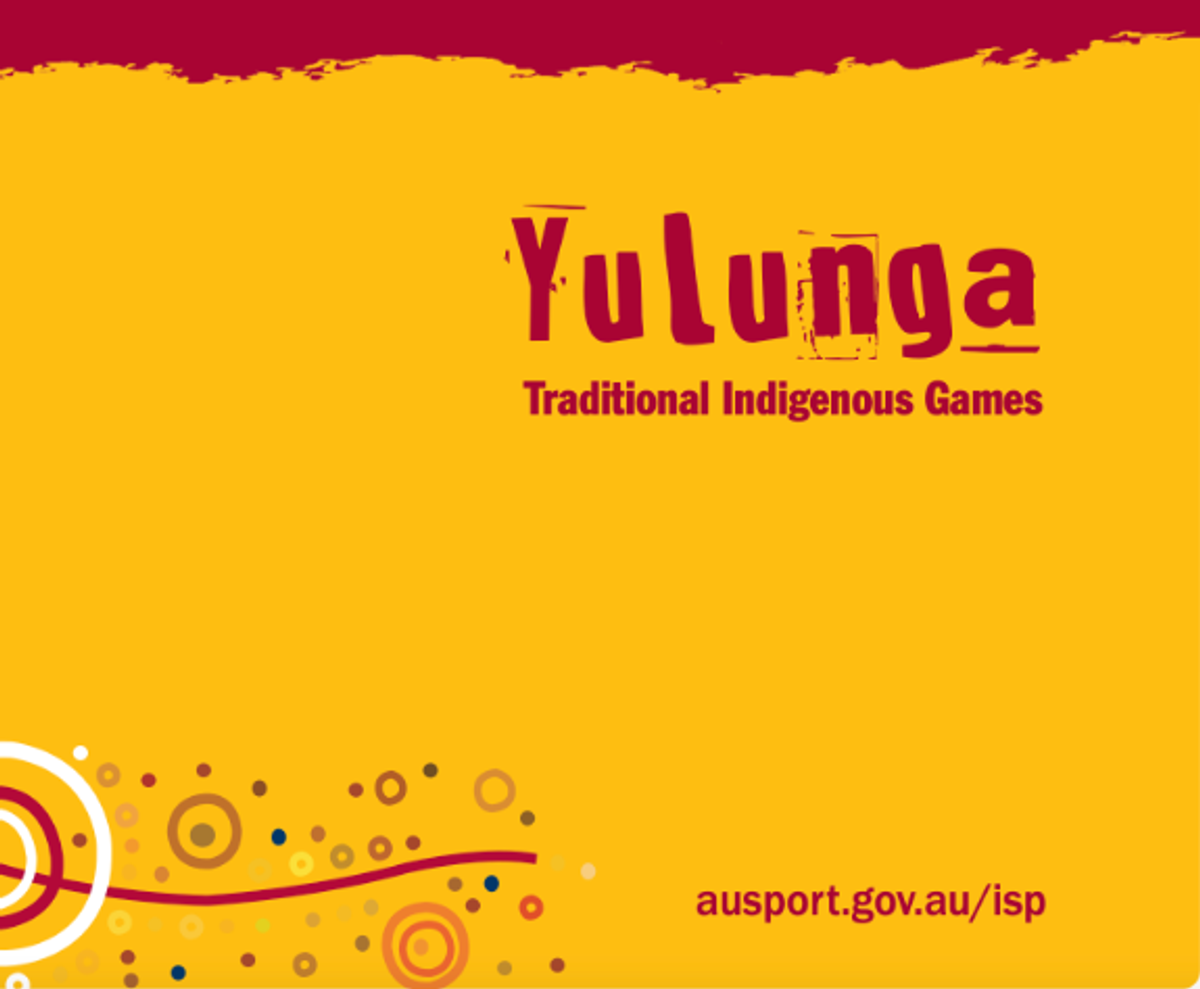KLA News
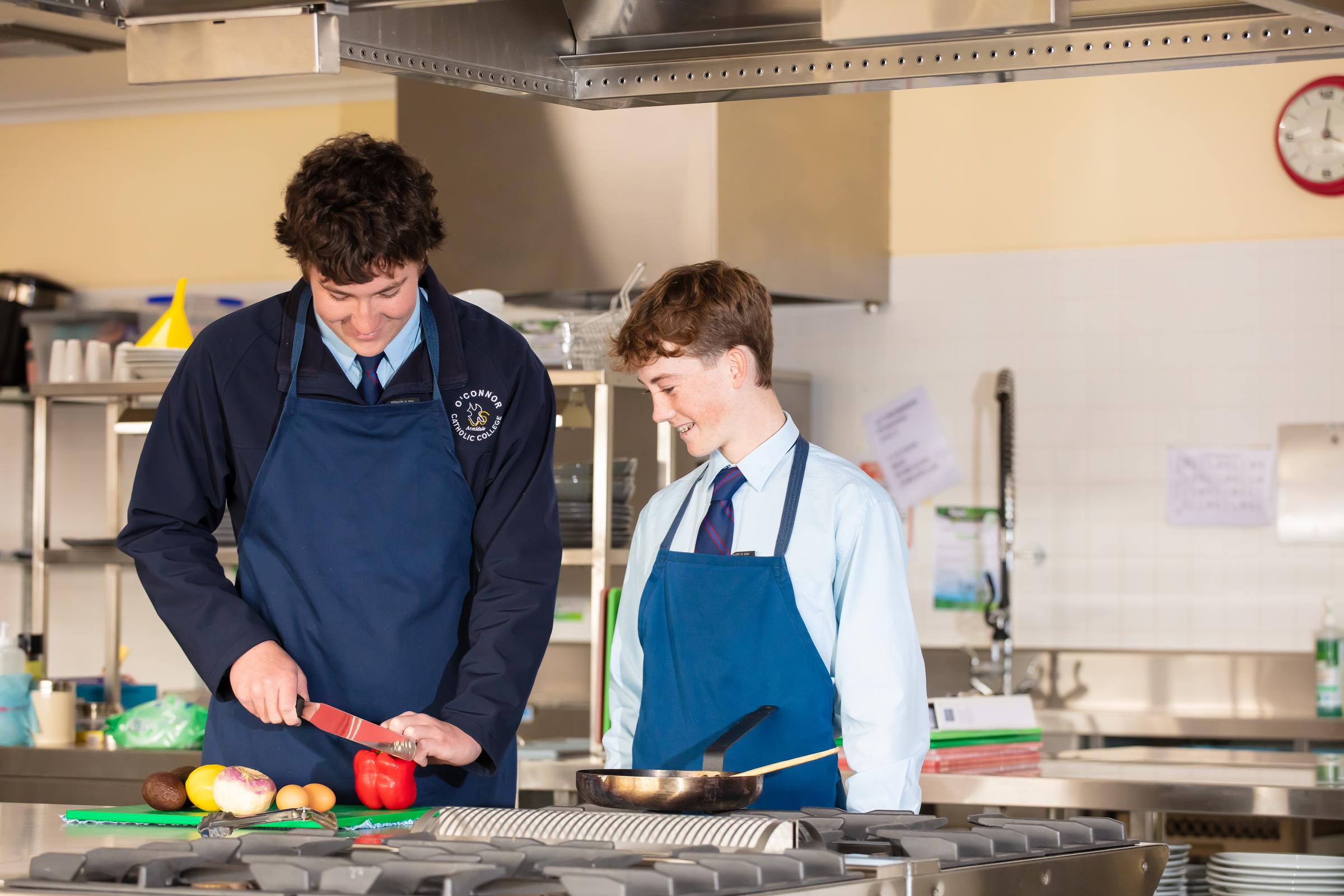
Science
Welcome to our science newsletter, where we celebrate the captivating journey of discovery taking place across all year levels! From exploring the forces that govern motion to delving into the mysteries of chemical reactions, our students are actively engaged in hands-on learning experiences that spark curiosity and inspire exploration. Let's dive into the exciting activities unfolding in each year group:
Year 7: Toys In Year 7, students are immersed in the fascinating world of forces. They have been conducting investigations to understand contact forces like friction and air resistance, comparing these with the intriguing realm of non-contact forces such as magnetism and gravity. Through experiments and observations, students are unraveling the fundamental principles that shape interactions in the physical world, setting the stage for deeper exploration in the years to come.
Year 8: Student Research Project Year 8 students are embarking on a thrilling journey of discovery through their student research projects. This practical investigation allows them to develop and hone their experimental skills while exploring topics of personal interest. From designing experiments to analysing data, students are empowered to take ownership of their learning journey, fostering curiosity and critical thinking along the way.
Year 9: Chemical Reactions In Year 9, the focus shifts to the captivating realm of chemical reactions. Students are diving into the world of chemistry, investigating how different fuels release energy through chemical reactions. Through hands-on experiments and inquiry-based learning, students are gaining insights into the factors that influence reaction rates and energy transformations, laying the groundwork for a deeper understanding of chemical processes.
Year 10: Newton's Laws and Car Safety Year 10 students are delving into the fundamental principles of physics with a focus on Newton's laws of motion. They are exploring how these laws play a crucial role in understanding the physics of car crashes and ensuring vehicle safety. Through real-world applications and simulations, students are gaining a deeper appreciation for the role of physics in everyday life, empowering them to make informed decisions and contribute to safer transportation systems.
As our students journey through these enriching experiences, they are not only expanding their knowledge and skills but also cultivating a passion for lifelong learning and discovery. With each experiment conducted and concept explored, they are taking bold steps toward becoming the innovators and problem-solvers of tomorrow. Stay tuned for more exciting updates as our scientific explorations continue to unfold!
Mr Daniel Fittler
Leader of Learning, Science
CAPA
Wow what a busy three weeks we have had in CAPA.
Eisteddfod:
Firstly we have had the eisteddfod where multiple students have participated both individually and as ensembles. The following students/ groups competed in the following sections:
- Drama Section -Jenna Alkalaldeh, Jessica Ferris, Riley Fittler, Amber Hahn, Sam Harris, Manon Perrin, Josephine Ryan, Riley King, Sam Dwyer, Cooper Keene, Siara Morris, Bella Brodbeck, Jessica Miller, Eliza Rose, Eli Vanucci and Violet Gadd
- HSC Music Performance - Ian Berney and Maya Teege
- Music Composition - Ian Berney and Olivia Fenton
- Piano section - Laura Lidgard, Emilio Morales Bello and Tahlia Burney
- Vocal Section - Hazel Fittler, Marisa Suluma
- String Section - Zephyr Berney, Olivia Fenton and Samuel Russell
- Woodwind Section - Laura Lidgard, Kevin Tighe, Corin Cowley and Lexi Vickery
- Contemporary Band Night - Harrison Newcombe, Maggie Riddley, Lalina Ward
- Class ensembles - Richard May, Laura Lidgard, Charlotte Harris, Jessica Braodhead, Khia Morris, Kayden Mulligan, Caitie Symons, Harrison Newcombe, Maggie Riddley, Lalina Ward, Ebony Barnes, Iliana Fernandez, Rhys Fischer
- Band Night - Richard May, Harrison Newcombe, Maggie Riddley, Lalina Ward, Jessica Miller, Kevin Tighe, Laura Lidgard,Charlotte Williams, Payton Stewart, Jandre Ferreira, Staten Dowse, Emilio Morales Bello, Martrina Goidanich De Catro Michaelsen. Also special mention to Mrs May who played with the concert band on band night.
Well done to everyone who has been involved over the past three weeks Miss Plane, Mr Myers and Miss Sampson are very proud of you all.
Catholic Schools Week Mass
Our musicians have also been involved in the Catholic Schools Week Mass. This mass is one of the biggest masses for the year on our school calendar. Thank you to the following musicians who were involved in leading the music at this: Lily Croft, Maya Teege, Hunter McDonald, Martrina Goidanich De Catro Michaelsen, Payton Stewart, Bernadette Ryan, Richard May and Fraser McQueen.
Sydney Symphony Excursion
Last Thursday Mr Myers and Miss Sampson took a number of our elective music students to watch the Sydney Symphony perform live at the Tamworth Town Hall. All enjoyed the night and for some this was the first time they have seen an orchestra perform live.
Events Coming up:
Term 2 Showcase Night
Thursday 20th of June. This night is for our eisteddfod performers and HSC music and drama students to showcase their talents.
Founder’s Day
A message from our Arts Captain Lily Croft:
Are you interested in showing off any music, theatre, dance, comedy or poetry talents at our annual Founder's Day? You're in luck! We will have posters and sign up sheets coming soon with more information about this event.
In the week leading up to Founder's Day, we will be having an art competition. Be prepared to vote for your favourite works and choose a winner for a prize! Do you have an artwork or sculpture you want to submit for this competition? Come chat to Miss Frazier or Lily about submitting a work!
Miss Melanie Sampson
Leader of Learning, CAPA
TAS
Textiles
One of the focus areas for Stage 4 Technology Mandatory is Textiles. 7.1 have engaged in following the design process in Textiles this term to personalise a drawstring bag using a range of fabric decoration techniques.
Students learnt a range of fabric decoration techniques including embroidery, applique and beading; researched bag designs; developed and evaluated their own design concepts and then manufactured their item.
Students are nearly finished with the manufacturing process and the bags are looking fantastic with a range of design features and decoration techniques.
Food Technology
Year 10 Food Technology are studying Food Product Development and have responded to the brief to design and create a movie themed /movie long snack food item.
They were creative and clever, often having to problem solve on the run. All displayed perseverance and a growth mindset to the task.
iSTEM
Once again the CO2 Dragster competition is underway. Students spend about half a term researching principles of motion that they can use in the design of a CO2 Dragster. The students are given a triangular prism-shaped piece of balsa wood that is very soft and light. They then shape this into a car that is powered by a CO2 canister (like the ones used in Soda Streams to carbonate water). This propels the cars down a 20-meter track in a time of just under 1 second. This is the equivalent of getting to about 75 km/h in 1 second! Some of the main strategies that students use are to reduce the weight of the car (cut off as much of the car as they can) and make the car as aerodynamic as they can. Part of the competition involves the show and shine in which the students are awarded points on the looks of their car. Below you will find the final designs of some of this year's cars. The race will take place next week and students will battle it out for number one place. Good luck to all involved!
Mr Jon Hawthorne
Leader of Learning, TAS
PDHPE
Students in Personal Development, Health and Physical Education (PDHPE) in Years 7-10 have just concluded their Athletics Units. Our unit concluded with the College’s Athletics Carnival. Well done to all students who participated, not only in class, but also at our carnival. Congratulations to all of our Age Champions and Runners Up for each age group. A full copy of results is located in the Sports Report. Best of luck to our College Athletics Team that will now travel to Tamworth for Diocesan Athletics on the 8th of August at the Tamworth Athletics Centre.
Students in Year 7-10 PDHPE will now move on with the following Units of study:
Year 7: Mirror Mirror and Invasion Games
Year 8: Nutrition and Invasion Games
Year 9: Eat, Sleep, Train, Repeat and Indigenous Games
Year 10: Road Safety and Net and Court Games
Below is the Yulunga resource our Year 9 students are currently exploring in class as part of our Indigenous Games Unit. Feel free to explore these traditional games: https://www.sportaus.gov.au/yulunga
Year 7 and 8 students have been working towards the following Invasion Games Outcomes below.
OCC PDHPE Stage 4 Invasion Games Observation Rubric
| Unit name: Invasion Games |
Unit Outcomes: PD4-4 refines, applies and transfers movement skills in a variety of dynamic physical activity contexts PD4-5 transfers and adapts solutions to complex movement challenges PD4-11 demonstrates how movement skills and concepts can adapted and transferred to enhance and perform movement sequences |
| Learning Intentions |
We are learning to:
|
| Success Criteria |
I can:
|
Self Assessment:
Peer Assessment:
Teacher Comments:
| A - Exceptional | B- Reliable | C- Inconsistent | D - Developing | |
On the ball play (Passing and Receiving) | -Able to anticipate the next pass. Uses variety of passes (based on type of game) -Hands ready to receive -Able to receive passes while on the move | -Attempts to vary types of passes -Passes are not always accurate -Most of the time is able to anticipate the next pass, and their head is up | -Uses one type pass proficiently. - ball is like a “hot potato” -Receives ball statically(not on the move) and with head down. | -Poor passing skills -Ball is like a “hot potato” - Head down, not looking for a pass |
Off the ball (Movement and Support) | - Consistently moves into space - Goes away from the ball and then comes back to support - Consistently uses correct supporting angles and distances | - Moves into space - Goes away from the ball and then comes back to support - Often uses correct supporting angles and distances | - Occasionally moves into space - Occasionally sees open spaces to move to - Doesn’t actively support play | - Still - Avoids the ball
|
| Defending Players and Space | - Marks players and spaces at the right times. - Does not overcommit - Uses concepts of pressure - Knows where he or she is in relation to other defending players - Consistently communicates with other players | - Marks players and spaces - Looks to intercept the ball - Uses concepts of pressure - Often communicates with other players | - Tends to follow one person - Occasionally over or under commits - Defends alone and not as a team - Occasionally communicates with other players | - Tends to follow one person - Often static and not involved in the game - Doesn’t communicate with other players |
| Application | - Consistently engages in all physical activities with exceptional effort
- Displays a high level of sportsmanship and responsible behaviours | - Engages in physical activity with good effort
- Displays good sportsmanship and responsible behaviours | - Student sometimes participates in physical activity
- Student sometimes displays good sportsmanship and responsible behaviours | - Student rarely participates in physical activity and rarely displays effort
- Student rarely displays good sportsmanship and responsible behaviours |
Parents and carers please don’t forget to log onto Compass to check in on your child’s progress in our subject. For each learning task on Compass there is now feedback available to both students and parents on their progress in our subject. Please feel free to reach out to your child’s PDHPE teacher if you wish to further discuss feedback or any of the tasks listed. You can find this in each subject under the tab - Learning Tasks (then click feedback).
Miss Camilla Clydsdale
Leader of Learning, PDHPE
English
Over the course of the term students continue to engage with their units of work, exploring both how to respond analytically to prescribed texts and compose creative compositions that utilise a range of techniques. Through Year 7 - 12, students are engaging with the feedback process in order to move their learning forward. Here is a recap of what’s happening in some of our spaces:
Year 9
Year 9 is continuing to work on the concept of ‘The Other’. At this point, our students have viewed the film, ‘Avatar’ and have constructed character webs, identified key themes arising from the text and have explored the structure of the plot.
They have now begun to analyse the representation of some of the key characters from the film. Right now, many of the classes are exploring Jake Sully and what type of hero he depicts in the film and what film techniques the director uses to express this message.
Year 12 Advanced English
As part of Year 12 English Advanced pattern of study, students explore the textual conversation between John Keats’ suite of poetry and Jane Campion’s biopic, “Bright Star”.
Much of what inspired Campion to create the film came from the letters John Keats wrote to Fanny Brawne, and as such, the Year 12 class spent an afternoon immersed in the natural beauty of the Grotto, writing a letter to someone they love whilst munching on cupcakes and drinking their choice of hot beverage.
Senior Study Skills Group
Senior study skills group continues to operate for our stage 6 English students on Tuesday afternoons from 3.30-4.30pm. The aim of this group is to hone our critical and creative writing skills and to give students an opportunity to receive immediate feedback and support on their English assessments.
Ms Lauren Donnelly
Leader of Learning, English
HSIE
All year seven students at O’Connor Catholic College benefit from our German language programme under the tuition of our highly skilled and experienced German teacher, Mrs Susanne Hughes, who also happens to be a native German speaker.
Year eight students have the opportunity to learn French from our talented and enthusiastic French teacher, Ms Emily Wooster.
We are incredibly lucky at O’Connor Catholic College to have two language teachers when many schools struggle to find just one; and for our students to be able to choose between French and German after the compulsory language courses in stage four is an opportunity that other schools would envy.
For this week’s report, I have been researching the value of learning a second (or more!) language. The research is clear: learning a second language has multiple benefits according to Bay Atlantic University in Washington DC.
It is more than just learning new words; it’s a key to the wider world. It connects you with people globally, opening up opportunities in travel, work, and understanding different cultures. It’s also great for your brain, improving memory and thinking skills, attention span, creativity and even self-esteem. It also slows down cognitive decline and can even improve your first language. Learning a second language enriches your understanding of different cultures and boosts career opportunities. Speaking another language allows you to connect more deeply with people globally, fostering empathy and cultural awareness (Read more here).
A list published by Auburn University records the extensive benefits of language learning in the 21st century world:
1. Foreign Language study creates more positive attitudes and less prejudice toward people who are from different cultures.
2. Analytical skills improve when we study a foreign language.
3. Business skills plus foreign language skills make us more employable - (so combining language learning with Commerce and/or Business Studies is a great idea!).
4. Learning about another culture enables us to gain a more profound understanding of our own culture.
5. Creativity is increased with the study of foreign languages.
6. Graduates often cite foreign language courses as some of the most valuable courses in college because of the communication skills developed in the process.
7. International travel is made easier and more pleasant through knowing a foreign language.
8. Skills like problem solving, dealing with abstract concepts, are increased when we study a foreign language.
9. Foreign language study enhances our opportunities in government, business, medicine, law, technology, military, industry, marketing, etc.
10. A second language improves our skills and grades in Maths and English.
11. Many jobs in the modern world are created as a result of foreign trade.
12. Foreign languages provide a competitive edge in career choices: we can communicate in a second language.
13. Foreign language study enhances listening skills and memory.
14. We can participate more effectively and responsibly in a multi-cultural world if we know another language.
15. Our marketable skills in the global economy are improved if we master another language.
16. Foreign language study offers a sense of the past: culturally and linguistically.
17. The study of a foreign language improves the knowledge of our own language: English vocabulary skills increase.
18. The study of foreign languages teaches and encourages respect for other peoples: it fosters an understanding of the interrelation of language and human nature.
19. Foreign languages expand our view of the world, liberalises our experiences, and make us more flexible and tolerant.
20. Foreign languages expand our world view and limit the barriers between people: barriers cause distrust and fear.
21. Foreign language study leads to an appreciation of cultural diversity.
22. Language learning prepares us for an increasingly multicultural society.
23. We are at a distinct advantage in the global market if we are as multilingual as possible.
24. Foreign languages open the door to art, music, dance, fashion, cuisine, film, philosophy, science…
25. Foreign language study is simply part of a very basic liberal education: to “educate” is to lead out, to lead out of confinement and narrowness and darkness.
Mrs Cherie Stoessel,
Leader of Learning, HSIE






